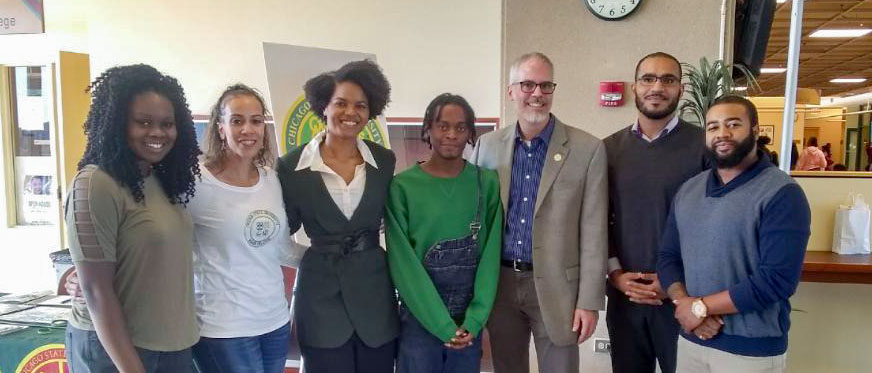Apply
First-Year Students (Freshmen)
Students who are incoming first-year students (freshmen) who wish to start at Chicago State in the Fall 2025 semester can apply for the Honors College 2025-2026 Cohort as part of their regular CSU Undergraduate Admissions application, either through the Common App or through CSU's application. You can get more information about applying to CSU as a first-year student on CSU's Undergraduate Admissions webpage.
While you are completing your CSU admissions application, you will be asked if you want to also apply to the Honors College. When you select yes, you will be instructed that you also need to submit an Honors College personal statement and at least two (2) letters of recommendation, along with your regular admissions application.
New Transfer Students
Students who are incoming transfer students who wish to start at Chicago State in the Fall 2025 semester can apply for the Honors College 2025-2026 Cohort as part of their regular CSU Undergraduate Admissions application. You can get more information about applying to CSU as a new transfer student on CSU's Undergraduate Admissions webpage.
While you are completing your CSU admissions application, you will be asked if you want to also apply to the Honors College. When you select yes, you will be instructed that you also need to submit an Honors College personal statement and at least two (2) letters of recommendation, along with your regular admissions application.
Current Chicago State Students
Current CSU students who will be in their junior year or earlier in the Fall 2025 semester can apply to the Honors College for the 2025-2026 Cohort through this website starting in the Spring 2025 semester. We will post more information about this application process in January 2025.


 All Rights Reserved
All Rights Reserved